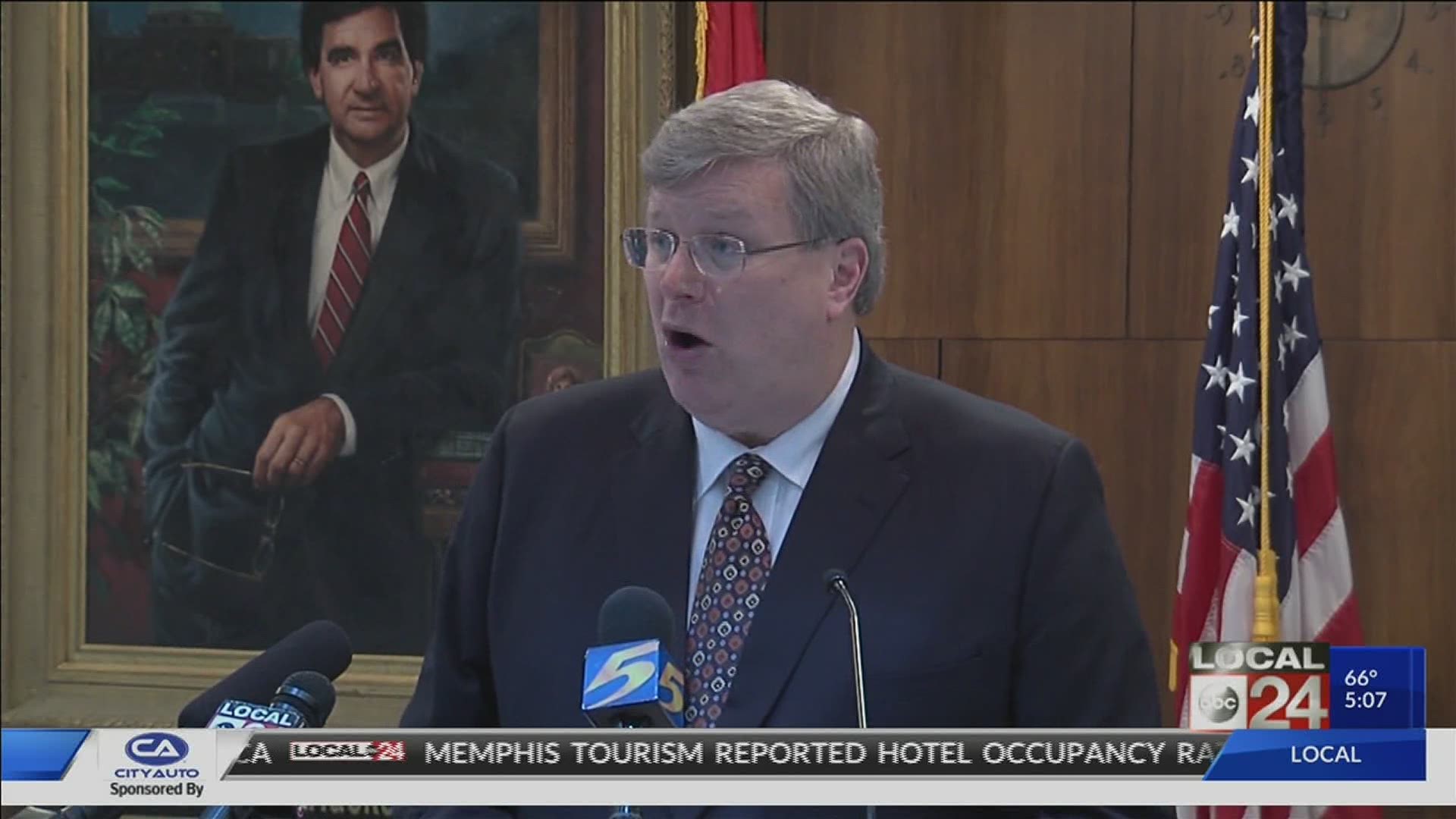MEMPHIS, Tenn. — It is the biggest quarantine announcement this city has had in more than 30 years.
Memphis Mayor Jim Strickland says the reality of Coronavirus has led him to take drastic action.
“Beginning at 6:00 p.m. March 24, the stay at home executive order goes into effect,” Strickland announced.
Essential businesses such as Police and Fire and FedEx can stay operating.
“FedEx is flying needed medical equipment all over, he said.”
Non-essential businesses close, and employees stay home.
The Mayor says there is no curfew, and this is NOT martial law. The city was under martial law in the 1970s during the police and fire strikes.
“As we’ve seen in California and New York, there are people who violate they (stay at home) edict. I don’t say every single violation will be stopped, that’s why it takes personal responsibility.”
If non-essential businesses remain open, police do have the power to contact Memphis City Code officials for a violation.
He says the order lasts only for two weeks because he only has authority to do this for two weeks. But he can issue another stay in place order if needed.
According to the Mayor, “Things will get worse before they get better, and they WILL get better.”
(MEMPHIS MAYOR'S OFFICE NEWS RELEASE)
Safer at Home Executive Order: What You Need to Know
To further combat the spread of COVID-19, the City of Memphis will issue a Safer at Home Order effective midnight on March 24, 2020 through midnight April 7, 2020 — directing all residents of Memphis to stay inside their homes, and immediately limit all movement outside of their homes beyond what is absolutely necessary to take care of essential needs.
THE BOTTOM LINE
City residents will be required to stay inside their homes unless they are engaged in certain “essential activities.” On those occasions when you are out of your home for necessary tasks, stay at least six feet away from others.
YOU CAN …
- Go to the grocery, convenience or warehouse store
- Go to the pharmacy to pick up medications and other healthcare necessities
- Go to medical appointments (check with your doctor or provider first)
- Go to a restaurant for take-out, delivery or drive-thru
- Care for or support a friend or family member
- Take a walk, ride your bike, hike, jog and be in nature for exercise — just keep at least six feet between you and others.
- Walk your pets and take them to the veterinarian if necessary
- Help someone to get necessary supplies
- Receive deliveries from any business which delivers
YOU SHOULD NOT …
- Go to work unless you are providing essential services as defined by this Order
- Visit friends and family if there is no urgent need
- Maintain less than 6 feet of distance from others when you go out
- Visit loved ones in the hospital, nursing home, skilled nursing facility or other residential care facility, except for limited exceptions as provided on the facility websites.
If you want help those affected by making a contribution, you can contribute to the Mid-South COVID-19 Regional Response Fund at the Community Foundation. The fund will provide flexible funding to organizations working with community members who have been impacted by novel Coronavirus and the economic consequences of the outbreak in West Tennessee, eastern Arkansas, and northern Mississippi.
To learn more and donate online, visit cfgm.org/COVID
-----------------------------------------
Coronavirus in Context:
The symptoms of coronavirus are similar to the flu or a bad cold. Symptoms include a fever, cough and shortness of breath, according to the Centers for Disease Control.
Most healthy people will have mild symptoms. A study of more than 72,000 patients by the Centers for Disease Control in China showed 80-percent of the cases there were mild.
But infections can cause pneumonia, severe acute respiratory syndrome, kidney failure and even death, according to the World Health Organization. Older people with underlying health conditions are most at risk.
The CDC believes symptoms may appear anywhere from two to 14 days after being exposed.
Lower your risk
- Wash your hands often with soap and water for at least 20 seconds. If soap and water are not available, use an alcohol-based hand sanitizer.
- Avoid touching your eyes, nose, and mouth with unwashed hands.
- Avoid close contact with people who are sick.
- Clean and disinfect frequently touched objects and surfaces.
- If you are 60 or over and have an underlying health condition such as cardiovascular disease, diabetes or respiratory illnesses like asthma or COPD, the World Health Organization advises you to try to avoid crowds or places where you might interact with people who are sick.

